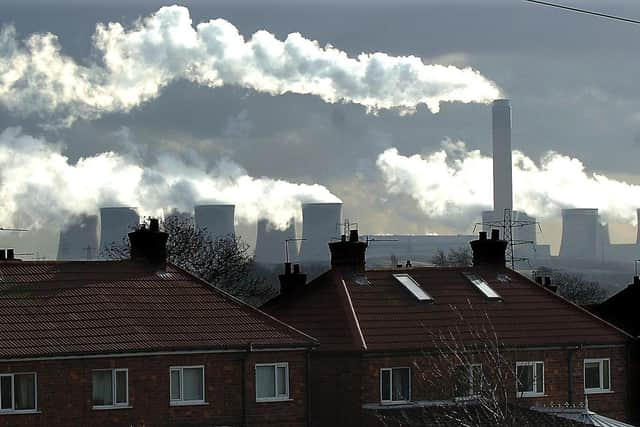Donegal recorded hottest May, August and November and Six Counties also posted record-breaking annual mean
and live on Freeview channel 276
These are among the unsettling findings of annual climate statements for 2022 newly released by Met Éireann and the Met Office.
Meteorologists from both agencies reported record-breaking temperatures.
Advertisement
Hide AdAdvertisement
Hide AdMet Éireann said the 26 counties experienced their warmest year on record.


The Met Office said climate change was partly responsible for driving the annual mean temperature in the six counties to 9.85°C - the highest ever. Across the UK an average temperature of over 10°C was recorded for the first time.
Malin Head had its joint warmest May on record with 11.9°C (1.6°C above its Long Term Average), tying with 2008 (record length 67 years), said Met Éireann.
The Inishowen headland was also the windiest place in the country with Met Éireann stating: “Annual mean wind speeds ranged from 5.9 knots (10.9 km/h) at Moore Park, Co. Cork to 14.9 knots (27.6 km/h) at Malin Head, Co. Donegal.”
Advertisement
Hide AdAdvertisement
Hide AdMalin Head also had the longest period of continual daylight: “The highest number of daily sunshine hours recorded this year was 16.1 hours at Malin Head, Co Donegal on Saturday, June 4.”


The Finner station between Bundoran and Ballyshannon had its highest maximum for November on record with 17.6°C (length 25 years).
Finner also broke its August maximum with 26.5 °C (length 11 years).
It was so warm there were only two days with air frost at Malin compared with 62 days at Mount Dillon, Co. Roscommon.


Advertisement
Hide AdAdvertisement
Hide AdThe majority of annual rainfall totals were below their 1981-2010 LTA although Malin Head recorded the highest number of rain days.
The number of rain days ranged from 183 days at Dublin Airport to 273 days at Malin Head.
Meanwhile, an attribution study conducted by the Met Office has shown that what would have been around a 1-in-500 year annual temperature in a natural climate, where human climate influences are removed, is now likely every three to four years.
The Met Office confirmed 2022 was the UK’s hottest year on record, with an average temperature of over 10°C for the first time.
Advertisement
Hide AdAdvertisement
Hide AdIn the six counties the figure was 9.85°C, due to our normally lower temperatures, but this was still higher than the previous record of 9.77°C (2007), and the 1991-2020 average (9.13°C).
Keith Lambkin, the Head of Met Éireann’s Climate Services Division said: “Climate change has changed the odds of getting more frequent, more extreme heat related events.
"Thanks to over a century of dedicated weather observations here in Ireland, we know that 2022 brought us record-breaking extremes as well as what is likely to be the warmest year on Irish record.
"It is essential that we must continue to adapt to ensure our national infrastructures and planning are best suited to both current and future warming.”
Advertisement
Hide AdAdvertisement
Hide AdHead of the Met Office National Climate Information Centre, Dr. Mark McCarthy, said: “The UK surpassing an annual average temperature of 10°C is a notable moment in our climatological history.
"This moment comes as no surprise, since 1884 all the ten years recording the highest annual temperature have occurred from 2003. It is clear from the observational record that human induced global warming is already impacting the UK’s climate.”
